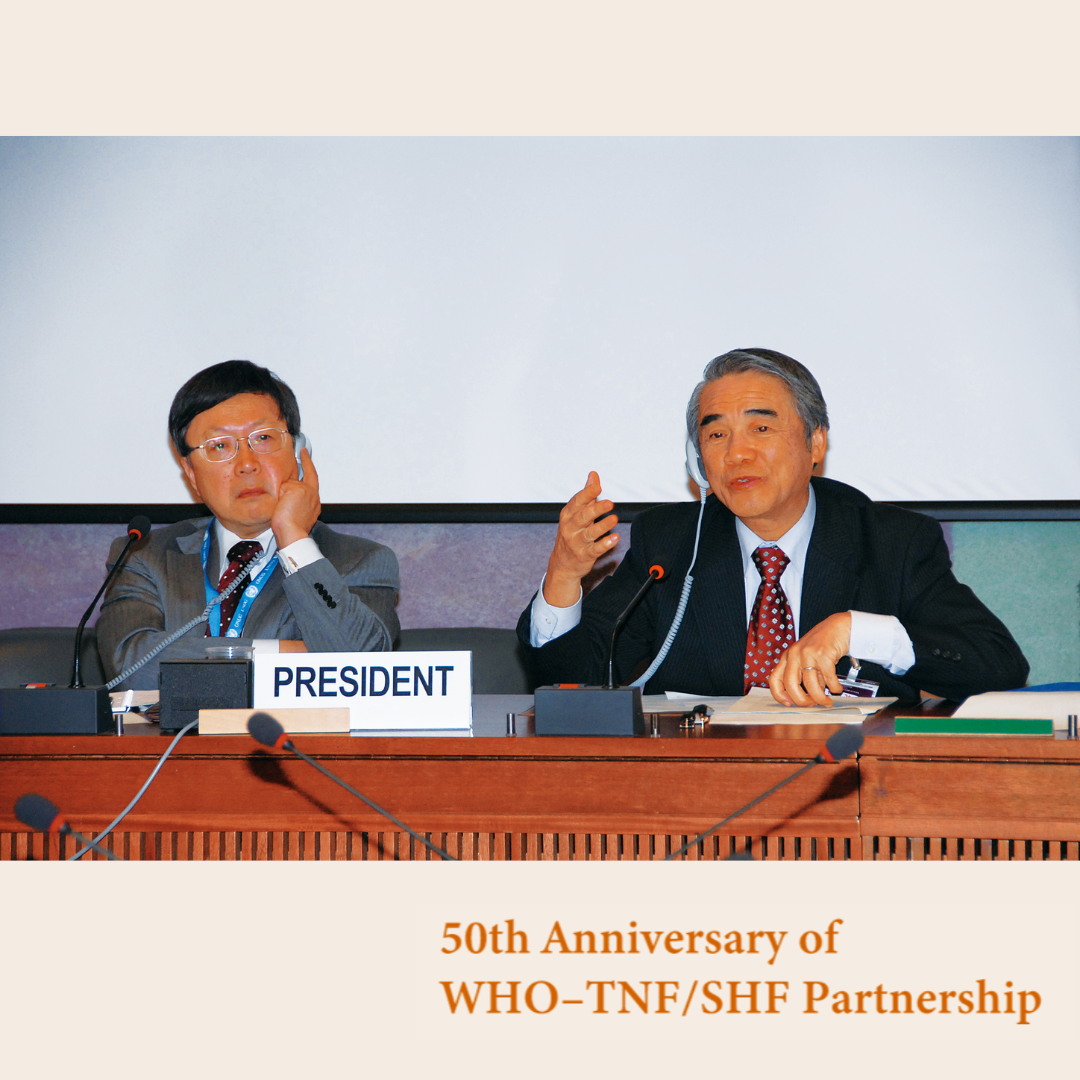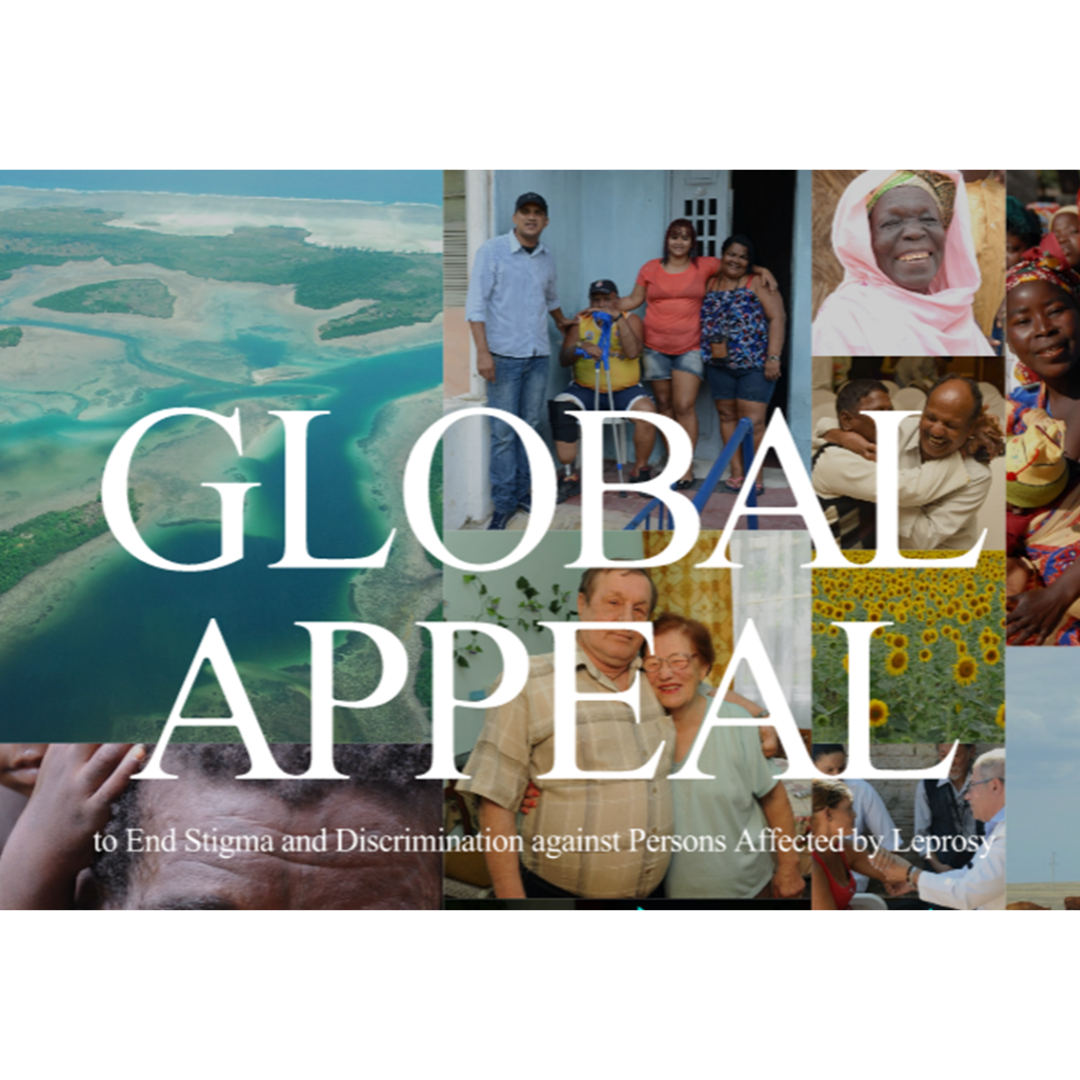The World Health Organization (WHO) Goodwill Ambassador for Leprosy Elimination, Yohei Sasakawa, visited Geneva, Switzerland, to meet with health ministers from WHO-designated global priority countries and other officials who were in the city to attend the 77th World Health Assembly. He inquired about each country’s leprosy situation and acknowledged the setbacks that happened during the COVID-19 pandemic. He requested that each country accelerate their efforts to reach WHO’s targets by 2030.
When meeting with health leaders from Africa, the Goodwill Ambassador spoke of climbing Mt. Kilimanjaro earlier this year and raising the “Don’t Forget Leprosy (Hansen’s Disease)” banner at the summit. He drew parallels between the determination that it took to make the ascent at age 85 and his commitment to supporting the fight against leprosy on the continent.
For administrative and reporting purposes, WHO organizes the world’s countries into six regions. The 23 countries that WHO has designated “global priority” for leprosy are located in five of these regions: Africa (11), South-East Asia (6), Western Pacific (3), Eastern Mediterranean (2), and Americas (1). The two Eastern Mediterranean countries, Egypt and Somalia, are on the African continent and are members of the African Union. The Goodwill Ambassador’s desire to intensify his activities in Africa is related to the fact that over half of the global priority countries (13) are located on the continent.
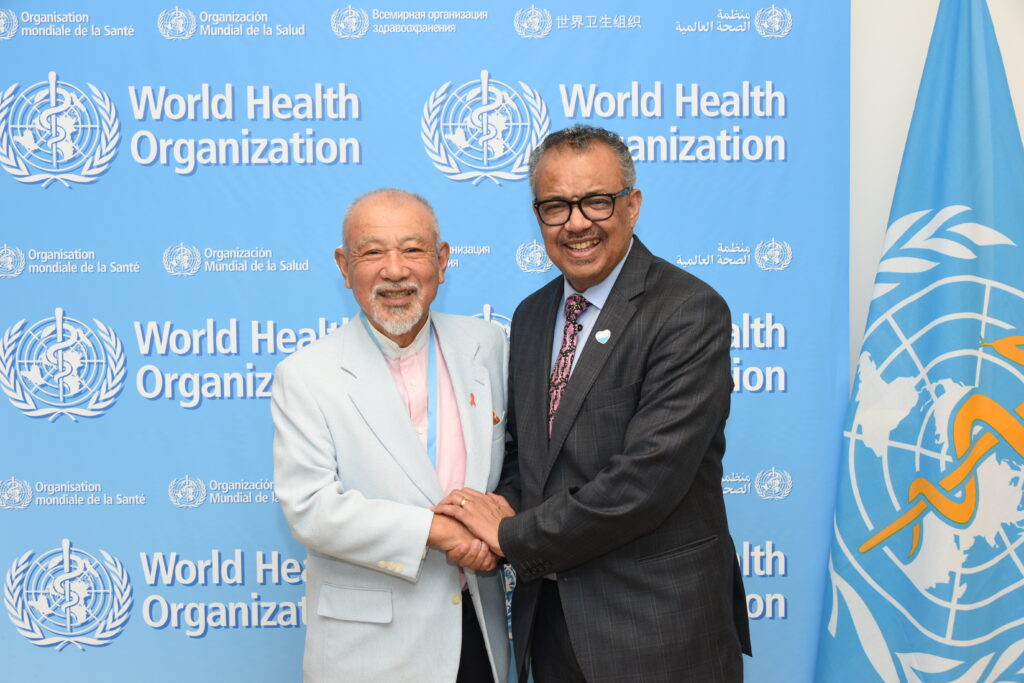
Africa (continent)
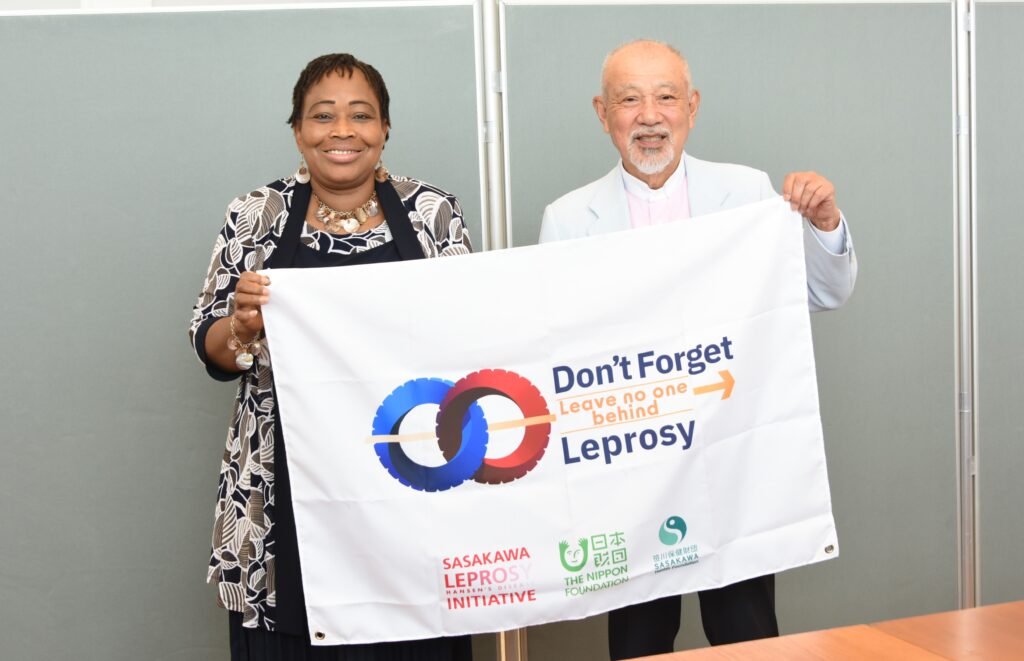
Ms. Minata Samate Cessouma, Commissioner for Health, Humanitarian Affairs and Social Development, African Union
The Commissioner acknowledged that leprosy is a very important issue. She noted that the disease is present in her village and she recalled seeing people with hand and foot deformities. She was also aware of discrimination, and agreed on the importance of spreading correct information so that cases can be found quickly and treated promptly. Reflecting on the COVID-19 pandemic, she observed that the fear and discrimination seen during the period when the disease was least understood might have something in common with the ways that people respond to leprosy when they do not have accurate knowledge about it.
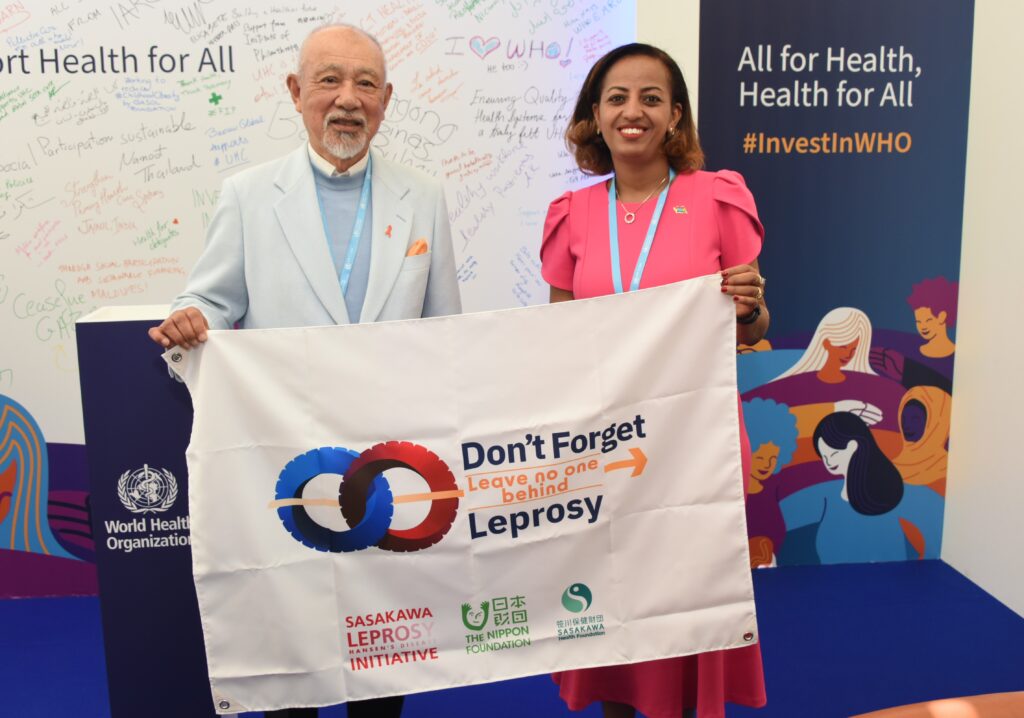
Dr. Mekdes Daba, Minister of Health, Ethiopia
The Minister affirmed Ethiopia’s commitment to moving towards zero leprosy. The country has made progress in control of the disease, but the number of new cases is increasing and discrimination is deep-rooted. The Ministry of Health is seeking to address leprosy from all angles, including research, patient services, and community support.
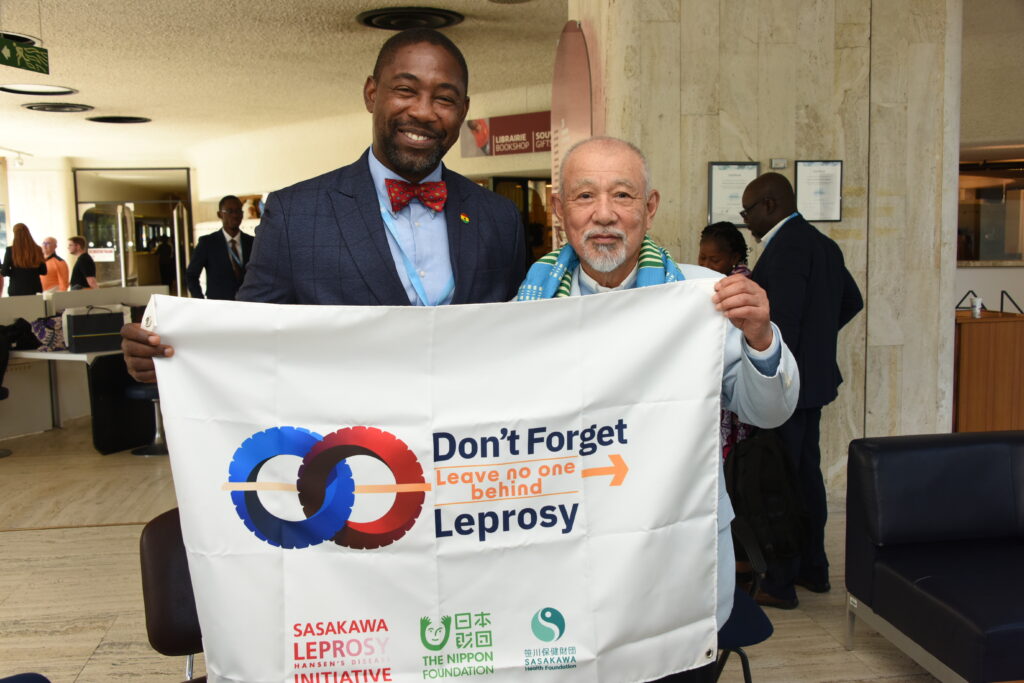
Dr. Bernard Okoe-Boye, Minister of Health, Ghana
In Ghana, new leprosy case numbers have stabilized at 260–280 cases per year since 2017, and so WHO has not designated it a WHO global priority country. As patient numbers drop, it is easy to “forget” leprosy. For this reason, the Goodwill Ambassador was pleased to meet with the Minister and hold the “Don’t Forget Leprosy” banner together.
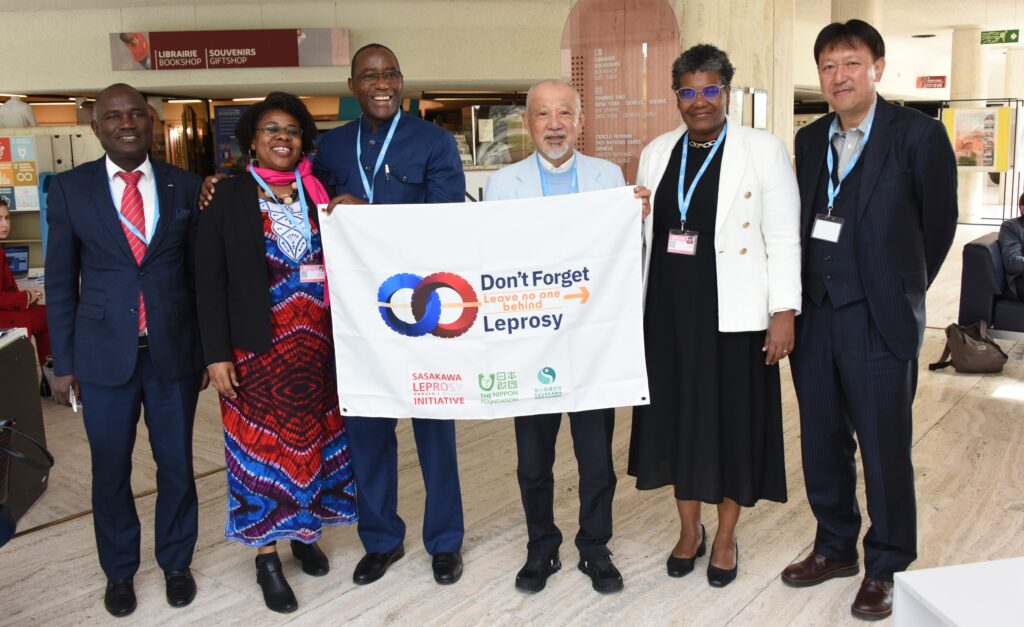
Dr. Armindo Daniel Tiago, Minister of Health, Mozambique
The Minister confirmed that the number of leprosy patients in Mozambique has been increasing in recent years. In the area that he is from, a local organization has been providing support to the many patients, but this support is scheduled to end in the near future. With situations like this in mind, he agreed on the importance of the government’s efforts.
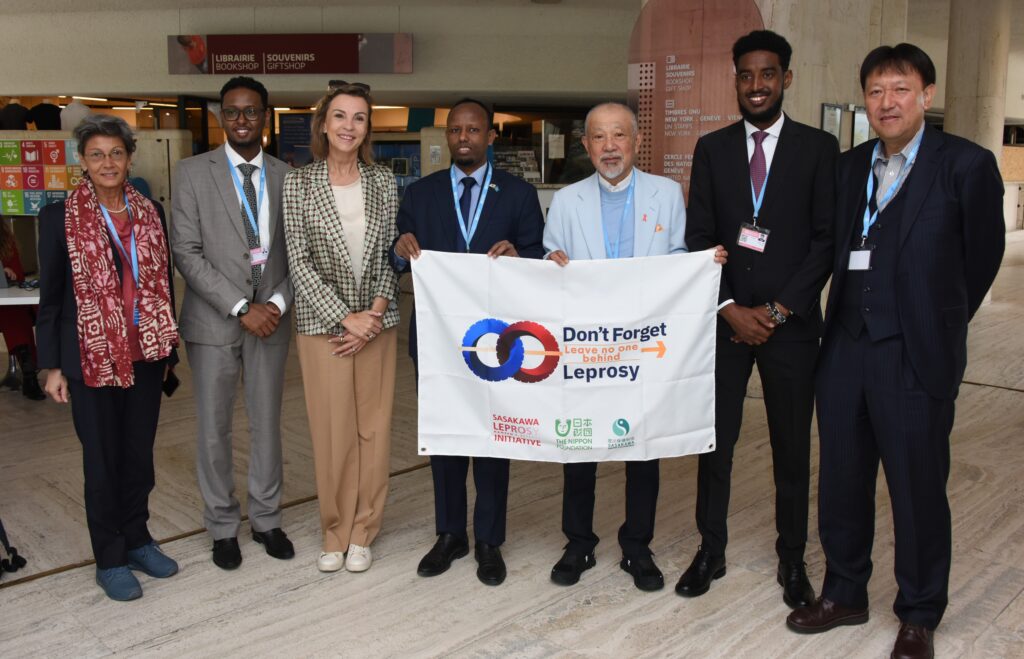
Dr. Ali Haji Aden, Minister of Health, Somalia
Somalia believes in the integration of health services. The Ministry of Health is working with the WHO Country Office to combat leprosy under the umbrella of Neglected Tropical Diseases (NTDs). Discussions with the director in charge of polio are exploring similarities in required services.
The Minister acknowledged the severity of the stigma attached to leprosy. He noted that Somalia lacks centers for leprosy treatment, and as a result, there are not enough opportunities for disseminating accurate information about the disease. Since 2016, the number of new patients has risen from about 800 to 2,000. Leprosy patients often live in isolated communities, and developing adequate measures to reach them continues to be a challenge.
South-East Asia
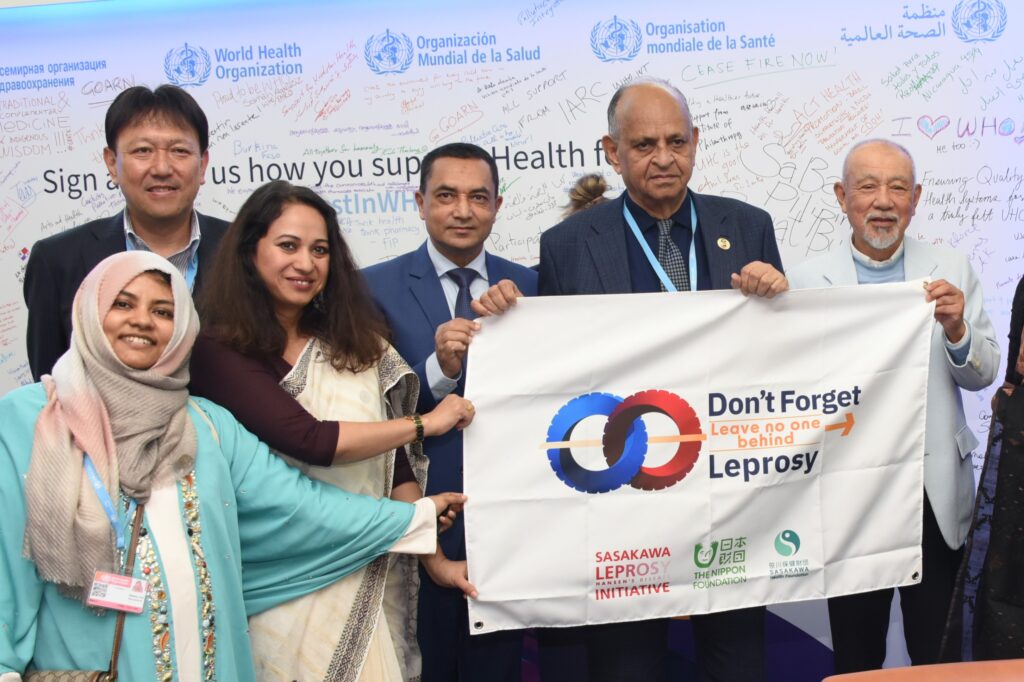
Dr. Samanta Lal Sen, Minister of Health and Family Welfare, Bangladesh
The Minister, who assumed his post in January of this year, has direct experience helping leprosy patients with disabilities through his work as a plastic surgeon and burn specialist. He affirmed that, in line with WHO’s global leprosy strategy for 2021–2030, Bangladesh aims to achieve zero leprosy by 2030. He is eager to eliminate stigma and discrimination against persons affected by leprosy, and spoke positively about cooperating with the Goodwill Ambassador.
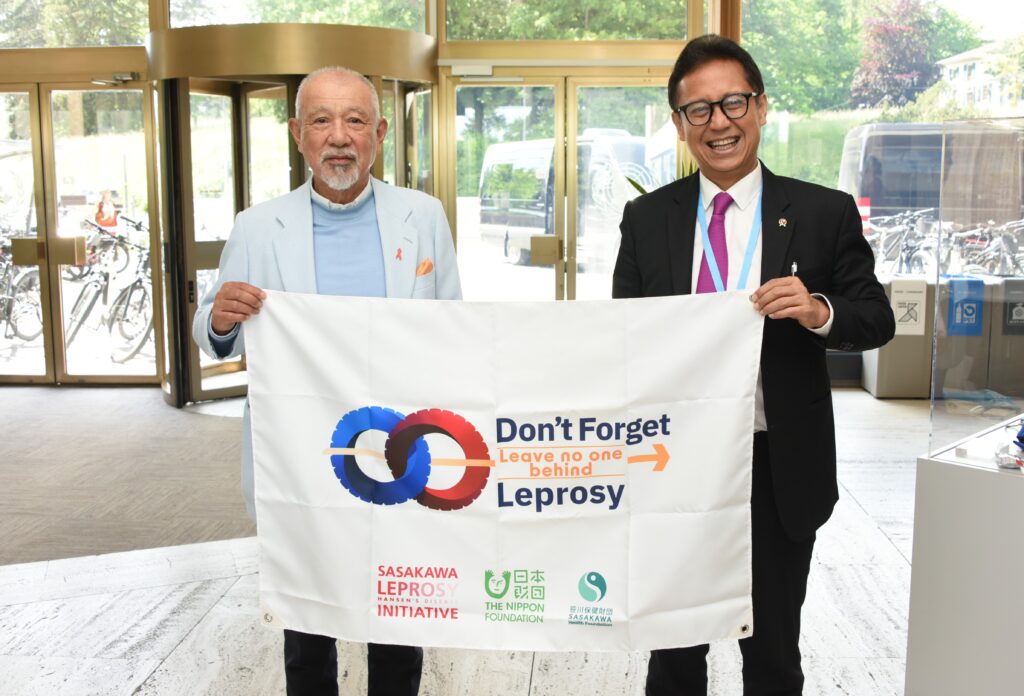
Mr. Budi Gunadi Sadikin, Minister of Health, Indonesia
The Minister spoke of Indonesia’s successes and challenges. A good system of leprosy screening has been established, cases are being identified, and medical care is in place. However, after patients are diagnosed, it is difficult to ensure that they continue to receive and take their medication.
Western Pacific
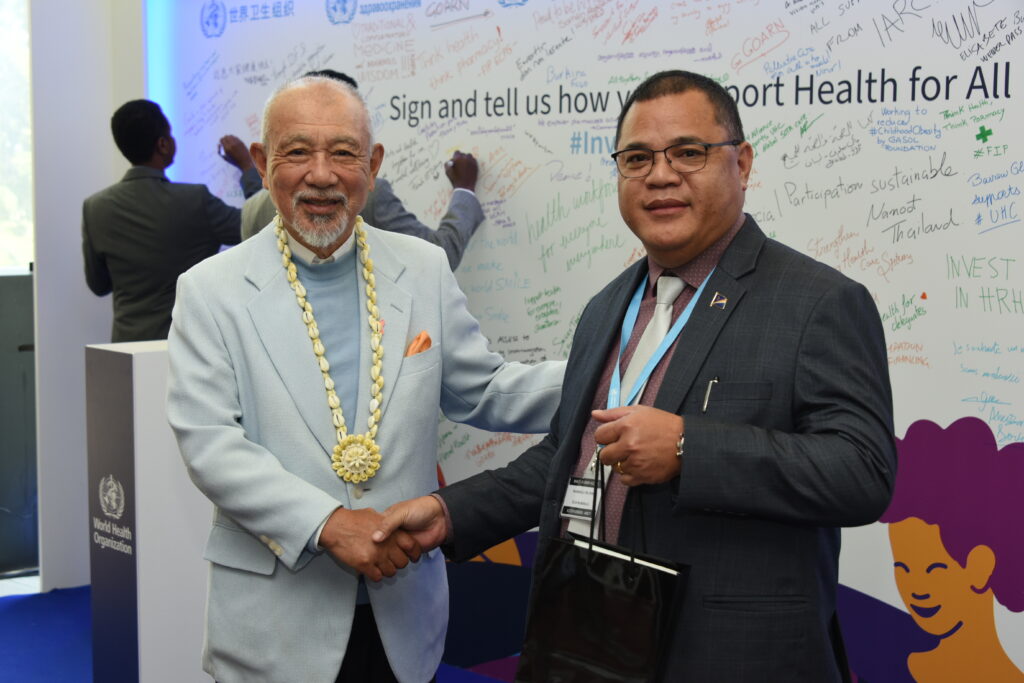
Mr. Ota Kisino, Minister of Health and Human Services, Marshall Islands
The Minister reported that screening for leprosy has been completed in Majuro and Ebeye Island, the two most densely populated parts of the country. The Marshall Islands is composed of approximately 1,225 islands and islets spread out in two chains. Completing screening of all settled areas will take more time.
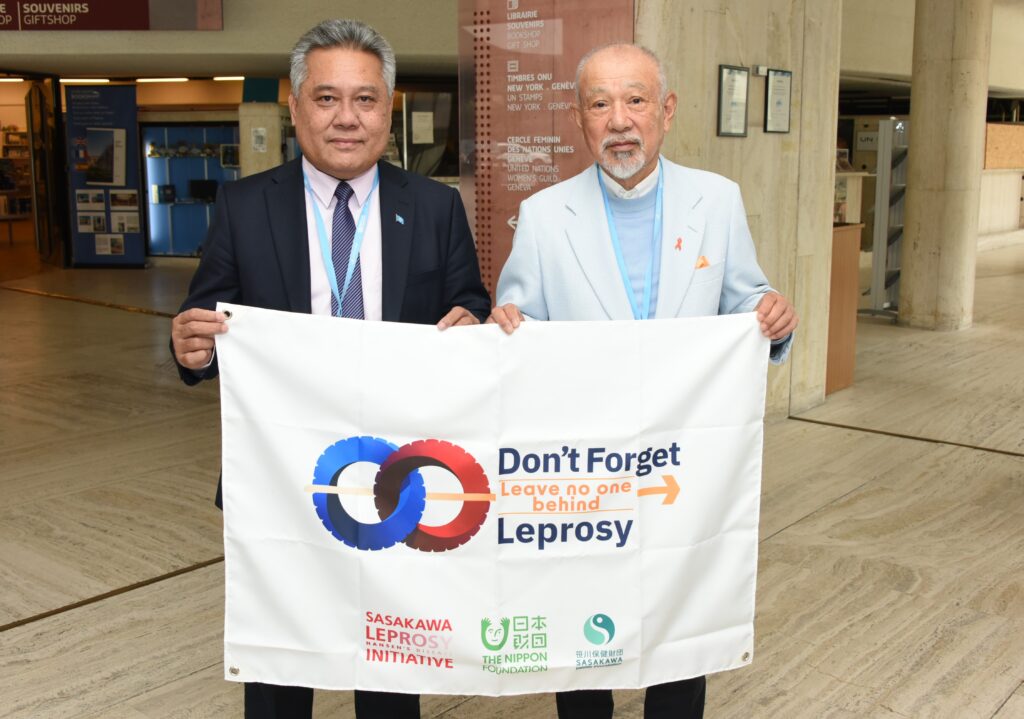
Mr. Marcus Samo, Secretary of the Department of Health and Social Affairs, Micronesia
The Secretary explained that the leprosy situation in Micronesia is challenging and not improving as rapidly as he had hoped. However, he believes that change is possible, and he hopes that the Goodwill Ambassador will be able to make an official visit so that they can discuss the situation in greater depth. Micronesia wants to make every effort to reduce the number of people affected by leprosy.







